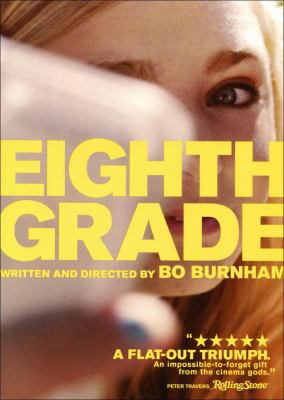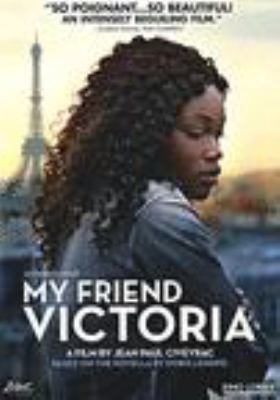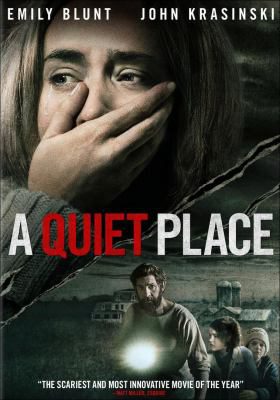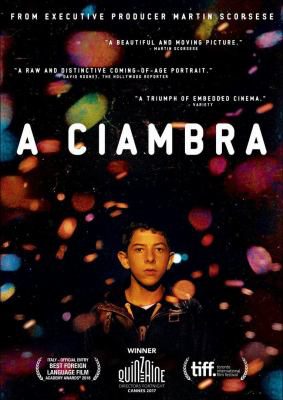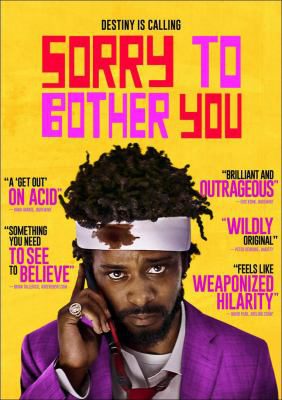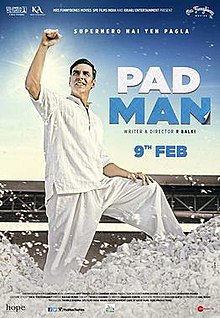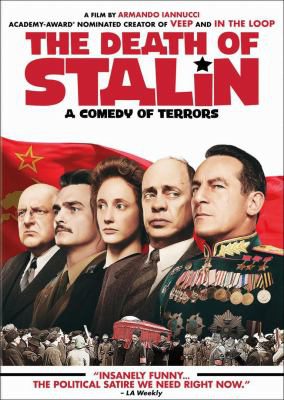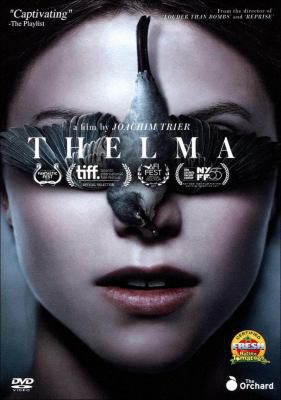Independent spirit: Films that offer fresh perspectives
Posted on January 9, 2019 at 6:00 am
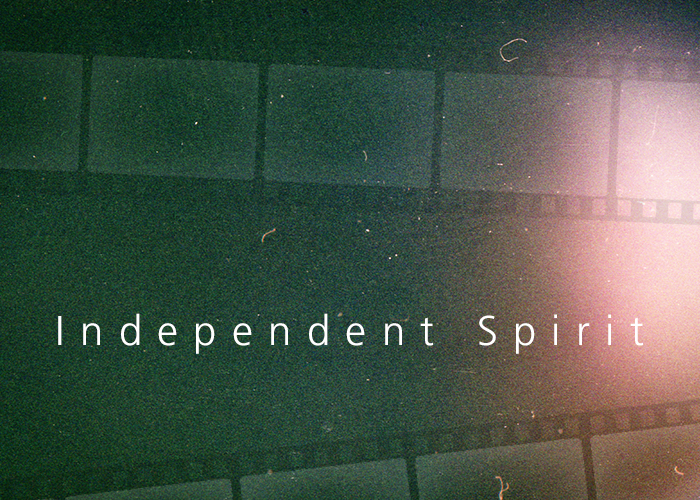
By Melissa Rhoades
Independence is a major theme in the American consciousness. We’re taught from an early age to admire historic figures that bucked the system in order to forge new paths. Most of us like to consider ourselves independent, too.
Yet most Americans don’t watch independent films. This is a shame since indie movies are where filmmakers forge new paths that keep the film industry from stagnating under the weight of overused Hollywood conventions and clichés.
But what is an independent film, anyway? The short answer is that it’s any movie created outside the Hollywood studio system. However, movies are multimedia creations made through the collaboration of several artists, technicians, and executives. As a result, a single movie may be filmed, edited, and distributed using a combination of independent and studio entities. There’s not always a clear way to draw the line.
So why seek out indie films when they’re harder to find? Precisely because of what they offer.
Independent movies expose us to new and evolving forms of expression, and this has similar benefits to slow reading (which I wrote about in a previous post). Stories that depart from anticipated styles, characterizations, and plots help us move beyond habitual expectations and experience fresh perspectives. They can also help us develop stronger empathy and a broader, more nuanced understanding of the world.
Foreign films provide this same opportunity regardless of whether they were made independently or by a major studio.
“Why is that?” you may ask. Because some foreign studio conventions differ from Hollywood’s. Each culture adds its own unique perspective to even the most universal tales. Plus, foreign films give us new faces and voices to fall in love with on the big screen.
Many people avoid foreign films because they say it’s difficult to read subtitles. But how many times have you been in a gym, waiting room, restaurant, or bar and watched a TV with closed captioning? If you’ve done that, you’ve already mastered subtitles. Before watching a foreign film, simply go to the setup menu and turn on English subtitles.
We are lucky to have the Magic Lantern Theater and the annual Spokane International Film Festival (SpIFF) to keep the Inland Northwest apprised of films that don’t get mainstream distribution.
The Magic Lantern screens independent and foreign films year round. SpIFF showcases feature-length indie and foreign films plus live-action and animated shorts each February. The 2019 festival runs February 1–8, and tickets are on sale now.
At the library, we offer independent and foreign films on DVD as well as movies to stream via Hoopla. In fact, we added more foreign films to our collection in 2018 because they’ve been gaining in popularity.
The following list is a small sample of adult indie and foreign films added to our DVD collection in 2018 and includes some of my favorite recent releases.
Bo Burnham is best known for precocious stand-up comedy, which he began when he was a teenage YouTuber. His debut as a feature-film director is equally impressive. Eighth Grade follows the achingly believable Kayla Day as she muddles through everyday adolescent trials. Actress Elsie Fisher finished eighth grade just before filming began, and she does a fantastic job of bringing to life Kayla’s relatable, awkward teenage moments. The film also explores our evolving relationship with social media, but you don’t have to be an iGen (Gen Z) to relate. As a Gen Xer, I was brought to tears at moments that harkened back to my teen experience in the 1980s. Together Burnham and Fisher create a female experience that feels authentic, and they do it with touches of humor and armfuls of compassion.
Based on Doris Lessing’s short story “Victoria and the Staveneys” (published in The Grandmothers), the French film Mon Amie Victoria (My Friend Victoria) unravels subtle but profound long-term consequences for a girl who discovers how a wealthier, white classmate lives. Director Jean Paul Ciyeyrac orchestrates a thoughtful, slow-moving sequence of events that explores how we’re shaped by household circumstances and complicated family relationships. The movie begins with a young Victoria being taken to a classmate’s house after her aunt is hospitalized. We then follow Victoria from childhood into her teen years and beyond. The adult Victoria, played by Guslagie Malanda, maintains a stoic presence that’s true to Lessing’s original story.
A Quiet Place straddles the independent and studio world, having been released by Paramount Pictures after Bluebox Films founders Scott Beck and Bryan Woods developed the story. At the film’s beginning, earth has been invaded by bloodthirsty aliens that look like something H. R. Giger could have spawned. These monsters are blind but have a keen sense of hearing, which means only people who stay quiet stay alive. In this survivalist reality, the Abbot family has a distinct advantage. Because they have a deaf daughter (played by deaf actress Millicent Simmonds), they know American Sign Language (ASL) and can communicate without making noise. Most of the dialogue is communicated via ASL with subtitles, and the movie successfully keeps the adrenalin pumping through mostly non-verbal means. John Krasinski co-wrote, directed, and co-stars in this innovative addition to the horror/sci-fi/monster movie canon.
The Italian movie A Ciambra (pronounced ah chee-AWm-bruh) is named after a low-income housing estate in southwest Italy. Built in the 1970s but never completed, the estate doesn’t receive electric or sewage services. Nevertheless, a Romani community of about 700 people lives there, where this film was shot. Director Jonas Carpignano cast the Amato family—actual residents of a Ciambra—as characters in this story about a teenager named Pio who’s desperate to prove he can provide for his family. Pio attempts various exploits and strengthens his friendship with Burkinabé refugee Aiyiva (played by Koudous Seihon). But Pio’s quest for adulthood leads him to a heart-wrenching decision. Gritty with a sparse sensibility and hauntingly beautiful soundtrack, A Ciambra reflects a stark reality most of us would not otherwise encounter. After watching the film, make time to watch the DVD Special Feature “The Other Side of the Story.”
With notes that echo Repo Man, Idiocracy, and Brazil, the zany new dystopian satire Sorry to Bother You is bound to become a cult classic. Written and directed by rapper and creative force Boots Riley, the movie follows everyman Cassius Green (played by Lakeith Stanfield) as he climbs the ladder of corporate telemarketing in a slightly altered version of Oakland, California. But on his journey from living in his uncle’s garage to being offered a $100 million deal, Cassius has to make increasingly difficult decisions. The film is interspersed with parodies of pop culture, for example, the earrings worn by Cassius’s effervescent girlfriend Detroit (played by Tessa Thompson). As the movie nears its dramatic climax, science fiction enters the plot, adding to the chaos, comedy, and commentary of this film that delightfully refuses to stay in one place.
If you’ve never indulged in cinema from India, you’re missing out on a long tradition that spans from the stark artistry of Satyajit Ray to the flamboyance of Bollywood. The 2018 film Padman tells a touching story overlaid with Bollywood tropes including singing, dancing, and a love triangle. The multiple plot twists are based on the real life of Arunachalam Muruganantham, a high-school dropout and welder who undergoes several trials while attempting to produce low-cost sanitary pads for women in impoverished parts of India. Despite a slow start and some clunky moments, this humanitarian tribute brought me to both laughter and tears. Not unlike the classic It’s a Wonderful Life, Padman provides not just a good story, but also an empowering message of goodness amid adversity. After watching the film, check out Muruganantham’s TED Talk and hear this real-life hero tell his own story.
Written and directed by Veep creator Armando Iannucci, The Death of Stalin packs a simultaneously funny and sober wallop. Based on a French graphic novel, the story springs from the real-life power grab that followed Soviet dictator Joseph Stalin’s death. In the movie version of events, chaotic, comic, and fatal shenanigans ensue between top-ranking rivals from Stalin’s inner circle—even before he’s pronounced dead. Featured actors include Steve Buscemi as Nikita Khrushchev, Jeffrey Tambor as Georgy Malenkov, and Michael Palin as Vyacheslav Molotov. Packed with wry satire, this film offers a somber reminder of what can happen when institutions and procedures don’t maintain the integrity to ensure peaceful transfers of power.
While often labeled a horror movie, the Norwegian film Thelma is really a closer relative to the Twilight Zone in tone and Black Mirror in aesthetics. The undoubtedly speculative plot emphasizes suspense and fantasy rather than gore. Raised in a strict, religious household, Thelma (played by Eili Harboe) struggles to fit in at the university in Oslo, at least until she meets Anja (played by Kaya Wilkins). But her physical attraction to Anja comes with guilt, shame, and disturbing seizures. Despite the inclusion of some worn-out imagery, director and co-writer Joachim Trier pulls off some satisfyingly unexpected twists and orchestrates a decidedly witchy conclusion. The film also showcases some fine cinematography, shifting between the natural beauty of the Norwegian woods and the architectural crispness of Oslo.
What are some of your favorite indie and foreign films? Share them in the comment section below.

Tags: DVDs, films, foreign films, hoopla, independent films, movies

